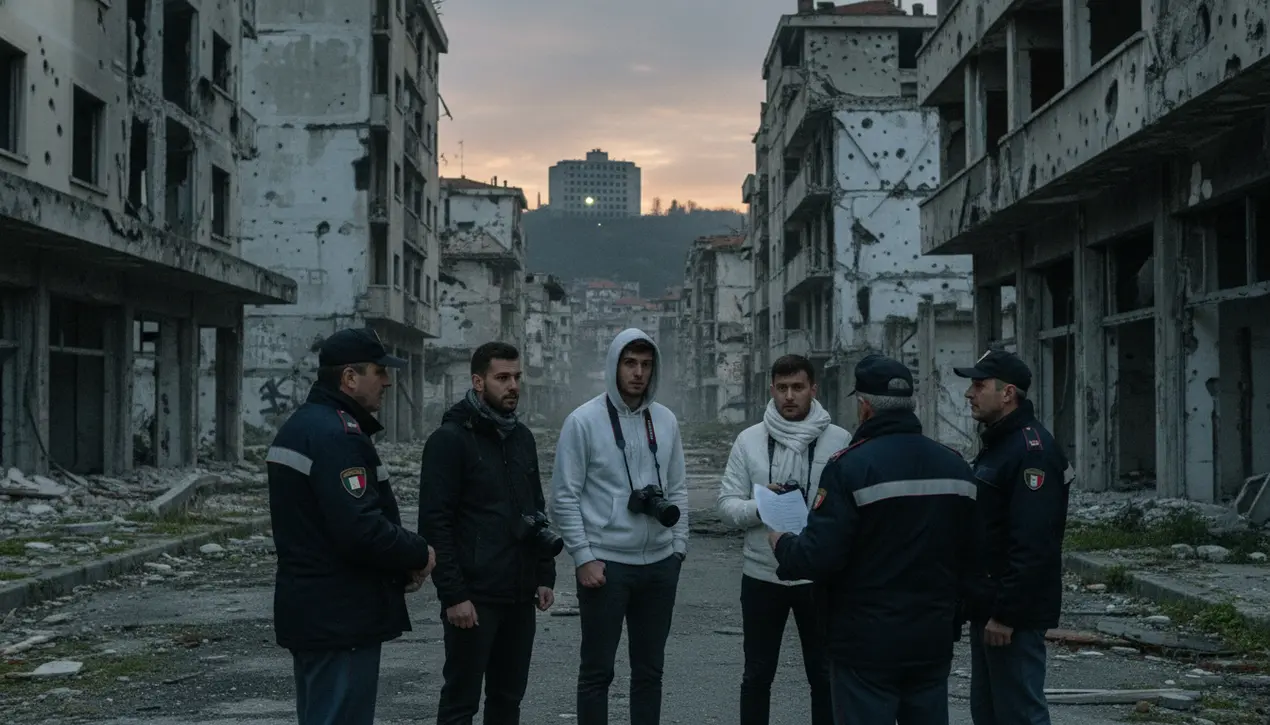
Politicsconflict & defenseWar Reports and Casualties
Italy Investigates Tourists for Shooting Civilians in Bosnian War.
RO
Robert Hayes
3 hours ago7 min read
Italian authorities have launched a significant investigation into a group of tourists, including their own citizens, for their alleged involvement in one of the most grotesque chapters of the Bosnian War—the siege of Sarajevo. The core allegation, as chilling as it is macabre, is that these individuals paid substantial sums of money for the opportunity to fire upon Bosnian civilians who were risking their lives to traverse the city's infamous Sniper Alley.This is not merely a historical inquiry; it represents a profound legal and moral challenge, echoing the post-World War II precedents where the lines between soldier, tourist, and war criminal were irrevocably blurred. The siege itself, a 1,425-day ordeal from 1992 to 1996, was a calculated campaign of terror by Bosnian Serb forces, a stark reminder in modern Europe of the tactics of starvation and sniper warfare once associated with Stalingrad.Into this theater of human suffering, these tourists are accused of inserting themselves not as observers, but as active participants in the terror, treating a humanitarian catastrophe as a perverse safari. The legal framework for such a prosecution is complex, potentially involving universal jurisdiction principles that allow for the prosecution of severe international crimes regardless of where they were committed.This case forces a re-examination of the very nature of complicity in an interconnected world. If wealthy foreigners could essentially purchase the chance to commit acts of violence in a conflict zone, it establishes a horrifying precedent for the commercialization of warfare, a trend that analysts fear could be replicated in other contested regions.The psychological impact on the survivors of Sarajevo, for whom the sound of a single sniper shot remains a traumatic memory, is immeasurable; this investigation reopening such wounds, yet also offering a sliver of long-delayed accountability. From a geopolitical standpoint, the probe tests the limits of European judicial cooperation and the enduring legacy of the International Criminal Tribunal for the former Yugoslavia (ICTY), which meticulously documented the siege's atrocities but could not have foreseen this particular brand of culpability.The Italian judicial system now bears the heavy burden of navigating these murky waters, determining whether these acts constitute direct participation in hostilities or a unique form of criminal tourism. The outcome will send a powerful signal about the international community's willingness to pursue not just the architects of such sieges, but also those distant beneficiaries who treated human life as a commodity in a conflict they were privileged to leave behind. It is a sobering case study in the banality of evil, updated for a globalized age, where the privilege of a passport can be perverted into a license to kill for sport.
#Italy
#Bosnia
#Sarajevo
#siege
#war crimes
#investigation
#tourists
#civilians
#featured
Stay Informed. Act Smarter.
Get weekly highlights, major headlines, and expert insights — then put your knowledge to work in our live prediction markets.
Comments
Loading comments...
© 2025 Outpoll Service LTD. All rights reserved.